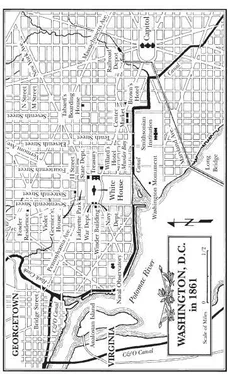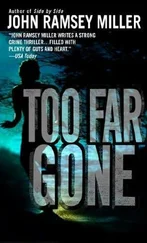John Miller - The First Assassin
Здесь есть возможность читать онлайн «John Miller - The First Assassin» весь текст электронной книги совершенно бесплатно (целиком полную версию без сокращений). В некоторых случаях можно слушать аудио, скачать через торрент в формате fb2 и присутствует краткое содержание. Жанр: Исторический детектив, на английском языке. Описание произведения, (предисловие) а так же отзывы посетителей доступны на портале библиотеки ЛибКат.
- Название:The First Assassin
- Автор:
- Жанр:
- Год:неизвестен
- ISBN:нет данных
- Рейтинг книги:3 / 5. Голосов: 1
-
Избранное:Добавить в избранное
- Отзывы:
-
Ваша оценка:
- 60
- 1
- 2
- 3
- 4
- 5
The First Assassin: краткое содержание, описание и аннотация
Предлагаем к чтению аннотацию, описание, краткое содержание или предисловие (зависит от того, что написал сам автор книги «The First Assassin»). Если вы не нашли необходимую информацию о книге — напишите в комментариях, мы постараемся отыскать её.
The First Assassin — читать онлайн бесплатно полную книгу (весь текст) целиком
Ниже представлен текст книги, разбитый по страницам. Система сохранения места последней прочитанной страницы, позволяет с удобством читать онлайн бесплатно книгу «The First Assassin», без необходимости каждый раз заново искать на чём Вы остановились. Поставьте закладку, и сможете в любой момент перейти на страницу, на которой закончили чтение.
Интервал:
Закладка:
“Then perhaps this is settled,” said the guest.
“You find our terms acceptable?”
“I do.”
“Excellent,” said Bennett. “Now, in terms of the planning-”
The visitor interrupted. “I will plan everything myself. In fact, you will not hear from me again until I have completed the assignment. I will not tell you where I am going or how I will accomplish it. But it will be done, and it will be done in a timely manner.”
“How will we keep track of you?” asked Hughes, speaking for the first time.
“You won’t.”
“We won’t?”
“No. There is nothing you can provide me.”
“That may not be true,” said Bennett. “I have a friend in Washington who may be of some assistance. She is an ally to our cause, and she has resources you may find helpful. I won’t insist on it, but I believe it would be a mistake not to make use of her.”
“Who is she?”
“Her name is Violet Grenier. She is near the center of the city’s social life. She knows many things about many people. Some call her the most persuasive woman ever to live in Washington. She will almost certainly have intelligence you will want to know.”
The visitor said nothing. Bennett took this as a sign to continue.
“I have taken the liberty of writing her a letter of introduction,” he said, handing an envelope to his guest. “I suggest you give it to her and see what she can do for you.”
The visitor studied the envelope. It was sealed. He turned it over in his hands several times before looking up.
“Very well,” he said at last. “I will consider making contact with this woman. In the meantime, I believe this concludes our business. You will know when I have succeeded. Sometime after that, you will see me again.”
He stood up to leave, but Hughes stepped into his view. “This may sound strange, but who are you?”
The visitor shot a look at Bennett.
“It may be best that you not know more than you already do,” said Bennett.
“What is your name?” Hughes persisted. “What if we need to contact you through Mrs. Grenier? How are we to do that? There must be some name that we can use.”
The visitor glared at Hughes, and it made the young man feel small. Hughes could see a vein in the guest’s forehead throbbing. He was suddenly afraid of this man.
“You need not answer him,” said Bennett.
The guest did not move. Hughes felt himself withering. Then the guest smiled, though not in a kindly way. His eyes seemed to threaten.
“You may call me,” he said, pausing briefly, and then speaking with a full Spanish trill, “Mazorca.”
The sky was overcast as Mazorca stepped off the porch of the Bennett house. He was satisfied with the arrangements made inside. It was quite a bit of land. When he completed the job, he would gain a small fortune. Mazorca had every intention of collecting.
He walked toward the water, where a few people strolled around the Battery. Off in the distance was Sumter. The day before, on the ship sailing into Charleston Harbor, Mazorca had seen it up close. He could tell immediately that it would not survive a coordinated attack. It was meant to serve as one part of a harbor defense rather than stand on its own. Its enemies were expected to come from the sea, not from the land. If the guns of Fort Moultrie started pounding away, Sumter’s fall would be only a matter of time.
Mazorca halted at the Battery’s edge. Green water lapped against the seawall. He stood motionless for a while, watching the waves roll up and down. He thought about the job that lay ahead. The objective was a familiar one. Yet it also felt like the most ambitious assignment he had ever accepted. There was much to learn, much to plan. He would enjoy the test and savor the success.
The papers in his pocket-the will, the codicil, and the letter to Grenier-pressed against his chest. He pulled them out, reviewed them, and put them back. Then he looked down at the water again. Its constant flow fascinated him. He stared at it for a few minutes, engrossed in the way that some people are when they stare at a fire.
About thirty feet to his right, Marcus placed a cap on the lens that had been pointing at Mazorca for half a minute. As Mazorca turned around and walked toward King Street and the heart of the city, he did not see Marcus. Nor did he see Lucius pat the boy on the back.
SEVEN
SUNDAY, APRIL 14, 1861
The wagon creaked forward, inch by inch. Somebody had taken everything he could manage to remove from his home and piled it onto the cart. The heap of trunks and furniture soared twelve feet off the ground. Two horses strained to pull this load toward the base of the Long Bridge, where Fourteenth Street and Maryland Avenue converged. It was incredible to think they had gotten the wagon to move at all.
For Colonel Rook, the sight was no novelty. The slow evacuation of Washington by Southerners had been going on for weeks. Some packed lightly because they did not think they would be gone for more than a few months. Others, like this man, seemed to take everything they owned.
Rook was convinced that even more people would leave now: the fall of Fort Sumter was inevitable. On Friday, the rebels in South Carolina had started firing. There were rumors the next day that Major Anderson had surrendered, but nothing was confirmed. Rook knew it was just a matter of time. Without provisions, Anderson could not withstand a siege. Sumter was finished.
The wagon crawled closer to the aptly named Long Bridge. The Potomac River was nearly a mile wide here, and the Long Bridge was the only direct route out of the city and into Virginia that did not involve getting into a boat. Rook had his men keep a tally of how many people left each day. It was usually just a handful. Across the weeks, however, the numbers added up. He thought this information was helpful, but even more useful was talking to people before they set foot on the bridge. When he could, Rook liked to conduct the interviews himself. It was a good way to gather intelligence.
“Good morning, sir,” hailed Rook as the wagon came to a stop right before the bridge. A man sat in front of his big load, and a slave beside him held the reins. The man looked annoyed at having to stop.
“Where are you bound?” asked Rook.
“Richmond.”
“Looks like you expect to be there some time.”
“Quite a long time.” The Southern accent was unmistakable.
“And why is that?”
The man glared at Rook as if the colonel were an imbecile. He hopped off the wagon and swept an arm toward the half-assembled city of Washington. “This will be gone in a few weeks-all of it,” he said. “The city will look like an earthquake had wrecked it. I don’t intend to be here when that happens.”
The man paused, but Rook said nothing. He knew from experience that interviews often produced their most valuable information when subjects were allowed to speak without interruption.
“Friends have written to me for months with a single message: ‘Robert Fowler, get yourself out of that city.’ When I heard that Fort Sumter had come under fire, I knew they were right. I regret leaving behind my house, and I couldn’t possibly take all of its contents. But Virginia will secede very soon, as will the rest of the South. This is a time for choosing sides. Surely, Colonel, you must know that Washington is not adequately defended. When Virginia and Maryland withdraw from the Union, it will be surrounded and it will suffocate.”
Fowler was about to get back on his wagon when Rook spoke.
“What makes you so certain Virginia and Maryland will secede? They haven’t yet.”
“No, but they will. I don’t intend to be here when trouble comes.”
Читать дальшеИнтервал:
Закладка:
Похожие книги на «The First Assassin»
Представляем Вашему вниманию похожие книги на «The First Assassin» списком для выбора. Мы отобрали схожую по названию и смыслу литературу в надежде предоставить читателям больше вариантов отыскать новые, интересные, ещё непрочитанные произведения.
Обсуждение, отзывы о книге «The First Assassin» и просто собственные мнения читателей. Оставьте ваши комментарии, напишите, что Вы думаете о произведении, его смысле или главных героях. Укажите что конкретно понравилось, а что нет, и почему Вы так считаете.












